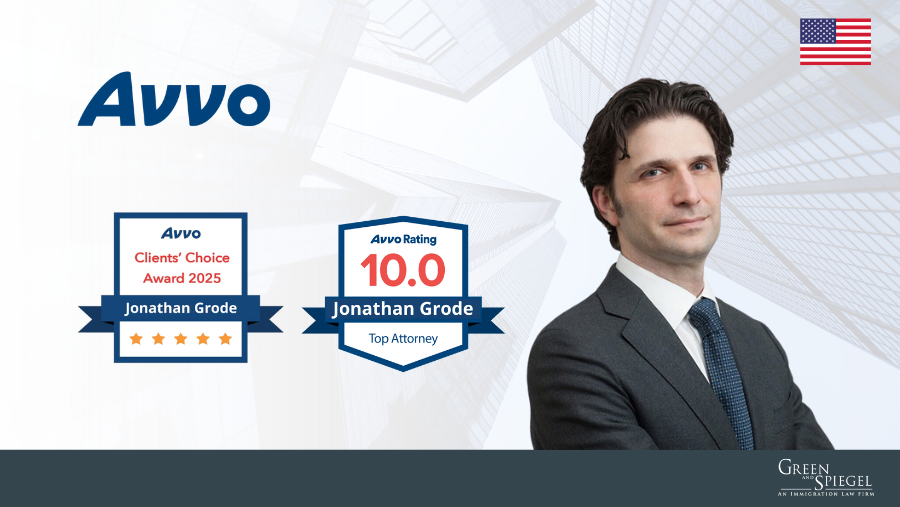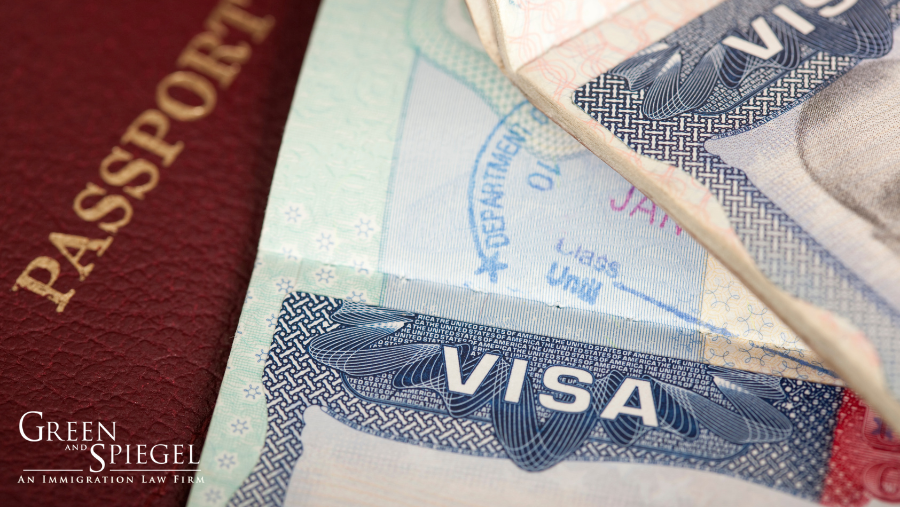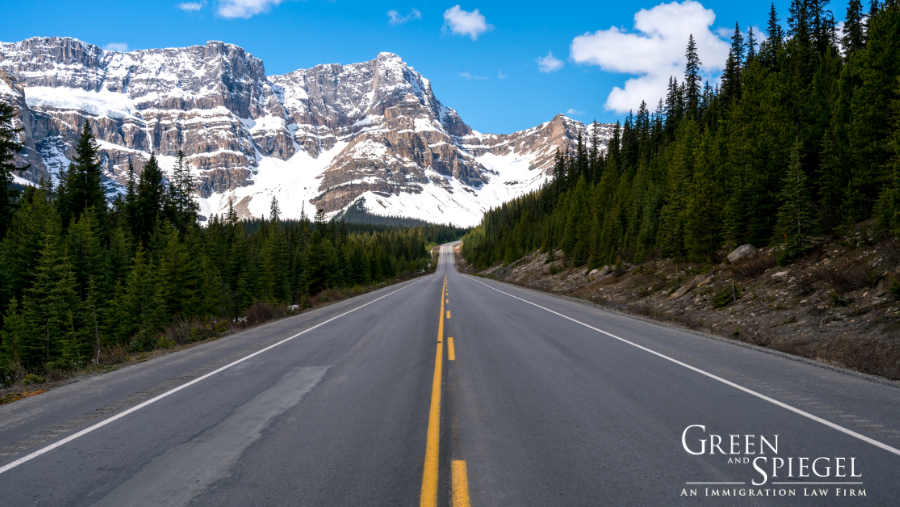Takeaways:
- On January 25, 2020, the Biden Administration extended the travel restrictions for Ireland, the United Kingdom, the Schengen Area, and Brazil and added travel restrictions for South Africa.
- Travel restrictions for South Africa go into effect on January 30, 2021 and the others are an extension of existing travel restrictions.
- The travel restrictions do not apply to a number of categories of Noncitizens and provide a waiver for the national interest.
- The policy does not contain procedures necessary to request national interest exceptions, likely leaving in place the procedures presently employed.
Background:
In March 2019, the United States implemented travel restrictions to slow the transmission of the 2019 novel coronavirus pandemic (“COVID-19”). These travel restrictions barred entry of many Noncitizens present in China, Iran, the United Kingdom, Ireland, Brazil and the Schengen Area of Europe during the fourteen days prior to seeking admission to the United States. Some of them were due to be lifted on January 26, 2021. However, on January 25, 2021, the Biden Administration extended and modified the travel restrictions, adding South Africa to those countries subject to the prior order. The new policy iteration is entitled “Proclamation on the Suspension of Entry as Immigrants and Non-Immigrants of Certain Additional Persons Who Poe a risk of Transmitting Coronavirus Disease” (“Proclamation”).
Effective Dates:
- South Africa becomes subject to travel restrictions pursuant to Proclamation § 2. Suspension and Limitation. (b). The restrictions become affective at 12:01 a.m. eastern standard time (EST) on January 30, 2021 (Proclamation, § 6. [b].)
- Iran and China are subject to the original travel restrictions and nothing in the Proclamation alters that situation.
- The Schengen Area, the United Kingdom, the Republic of Ireland, and the Federative Republic of Brazil remain subject to the same travel restrictions as before, affirmed as of 12:01: a.m. EST on January 26, 2021 (Proclamation § 6. [a].)
The Proclamation Does Not Apply to:
- U.S. Citizens (USC);
- U.S. Lawful Permanent Residents (LPR) – NOTE: does not include individuals with immigrant visas who have not entered the United States and assumed Lawful Permanent Residency;
- Spouses of USCs or LPRs;
- Parents and legal guardians of USCs or LPRs who are unmarried and under 21;
- Siblings of USCs or LPRs, so long as both are unmarried and under 21;
- Children, foster children, or wards of USCs or LPRs, or children who are prospective adoptees seeking to enter the United States on IR-4 or IH-4 Visas;
- Noncitizens traveling at the invitation of the U.S. government, for a purpose related to containing or mitigating COVID-19;
- Nonimmigrant crewmembers (C-1, D, or C-1/D visas);
- Noncitizens seeking entry to, or transiting through, the United States under an A-1, A-2, C-2, C-3, G-1, G-2, G-3, G-4, NATO-1 through NATO-4 or NATO-6 visa and those whose travel falls within the scope of section 11 of the United Nations Headquarters Agreement;
- Noncitizen member of the U.S. Armed Forces and their noncitizen spouses and children;
- Noncitizen whose entry would further important law enforcement objectives;
- Noncitizens whose entry is in furtherance of important U.S. law enforcement interests; or
- Noncitizens whose admission is in the U.S. national interest.
The Proclamation shall not be construed to limit individuals’ eligibility for asylum, withholding of removal, or protections under the Convention Against Torture, and does not appear to prohibit individuals from applying for an adjustment of status to Lawful Permanent Resident (LPR), or an application to extend or change their nonimmigrant status within the United States (Proclamation, § 2. [b]).
Whom Does the Proclamation Affect?
Those who have been physically present in South Africa, Brazil, the Schengen Area, the U.K., or Ireland at any time within the 14 days prior to attempting to enter the U.S.
Is There a General Waiver Available for those Subject to the Travel Restrictions?
Proclamation § 2. (a)(xii) states that “any noncitizen whose entry would be in the national interest, as determined by the Secretary of State, the Secretary of Homeland Security, or their designees” may seek admission to the United States. The Proclamation exempts those meeting the national interest requirement from the application of the travel restrictions to their attempt to enter the United States.
How Does One Obtain a Waiver in Order to Enter the United States?
The Proclamation is silent on the procedures for seeking an exemption from the travel restrictions. This was true of the prior travel restrictions as well and the procedures in place prior to the Proclamation’s enactment remain effective; though it should be stated that the Biden Administration can modify the applicable procedures and standards at will.
At present, those who believe their travel to the United States is in U.S. national interest may seek a National Interest Exemption (“NIE”) at the embassy or consulate abroad, generally at the U.S. embassy or consulate having jurisdiction in the place they reside. For example, a Noncitizen living in France would seek an NIE through the U.S. embassy in Paris and a Noncitizen living in the United Kingdom would seek an NIE through the U.S. embassy in London. In limited circumstances, NIEs may be sought through the U.S. Department of Homeland Security.
Are There Alternative Ways to Get to the United States Besides an NIE?
The travel restrictions apply ONLY to those who have been physically present in a country subject to them (China, Iran, South Africa, the Schengen Area, the United Kingdom, Ireland, and Brazil) during the fourteen days prior to seeking to enter the United States. Thus, a Noncitizen, subject to a U.S. travel restriction, may quarantine in a third country for no less than 14 full days, and then seek entry to the United States.
Conclusion:
Noncitizens who have been in China, Iran, South Africa, Brazil, Ireland, the United Kingdom, or the Schengen Area during the fourteen days prior to seeking to enter the United States may be subject to a travel restriction and unable to board a plane to the U.S. There are exceptions to the travel restrictions and those seeking a Proclamation, § 2. (a)(xii) national interest exception may do well to seek legal assistance in assessing eligibility and framing their request. In the alternative, quarantining in a third country, not covered by a travel restrictions, may provide the means for seeking admission to the United States. In all cases, it may be helpful to remember that these situations are fluid and both policy and procedure may change.
Green and Spiegel, An Immigration Law Firm with Nearly Sixty Years of Experience:
Green and Spiegel has been successful in obtaining NIE Waivers for Noncitizen employees and on behalf of their U.S. employers. We are monitoring this situation closely and will continue to update our blog and provide E-Alerts to advise on the latest developments. As always, we strongly encourage you to reach out to our office if you have any questions regarding if or how these changes impact you and your family. Our office number is (215)395-8959, we can be reached via web.
DISCLAIMER: Please note, nothing posted here is legal advice, nor does reading anything here or communicating with the writer on or through social media form an attorney/client relationship. Choosing an attorney is a serious matter and should not be based solely or primarily on advertising or any other public communication of an attorney or law firm.




